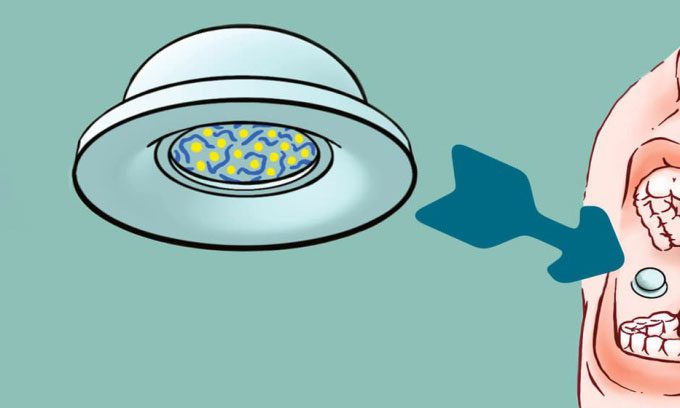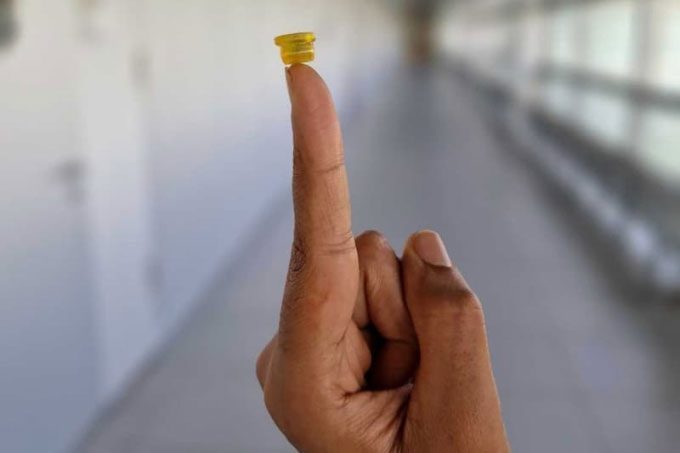A team of scientists from the ETH Zurich research institute has developed a tiny suction cup that attaches inside the cheek to deliver medication into the bloodstream within minutes.

The suction cup temporarily adheres medication to the inner lining of the cheek. (Photo: Luo Z)
Some medications can only be administered via injection, despite the fact that most people dislike this method. The issue with injectable medications lies in their relatively large molecular structure. These molecules can be broken down by the digestive system if taken orally; moreover, they are too large to enter the bloodstream through the intestinal wall. They are also too large to penetrate the mucous membrane that forms the inner lining of the cheek (known as the buccal mucosa) and the underside of the tongue.
To address these challenges, the research team at ETH Zurich, Switzerland, developed a tiny suction cup inspired by octopuses, as reported by New Atlas on September 29. The device measures 10 mm in diameter and 6 mm in thickness, filled with the aforementioned injectable medications, and can be attached to the inner lining of the cheek simply by pressing it against the area with two fingers. The cup stretches the mucous membrane below, making it more permeable.
To enhance permeability, the scientists incorporated a naturally-derived chemical into the medication that temporarily loosens the cellular network of the membrane. As a result, the medication is transported through the buccal mucosa and into the bloodstream in just a few minutes.
In trials conducted on dogs (without causing harm), the suction cup successfully delivered medication into the bloodstream. The empty cups have also been tested on 40 individuals, most of whom reported a preference for this method over injections. The cups remained attached inside the volunteers’ cheeks for about half an hour without causing any discomfort.

The suction cup measures 10 mm in diameter and 6 mm in thickness. (Photo: Transire Bio)
“We have a prototype and have patented this technology. Our next step is to manufacture the suction cup to comply with current pharmaceutical regulations,” stated Nevena Paunović, an expert at ETH and one of the researchers leading the study alongside David Klein Cerrejon.
The suction cup is being commercialized through the company Transire Bio. Research on this device has been published in the journal Science Translational Medicine.


















































